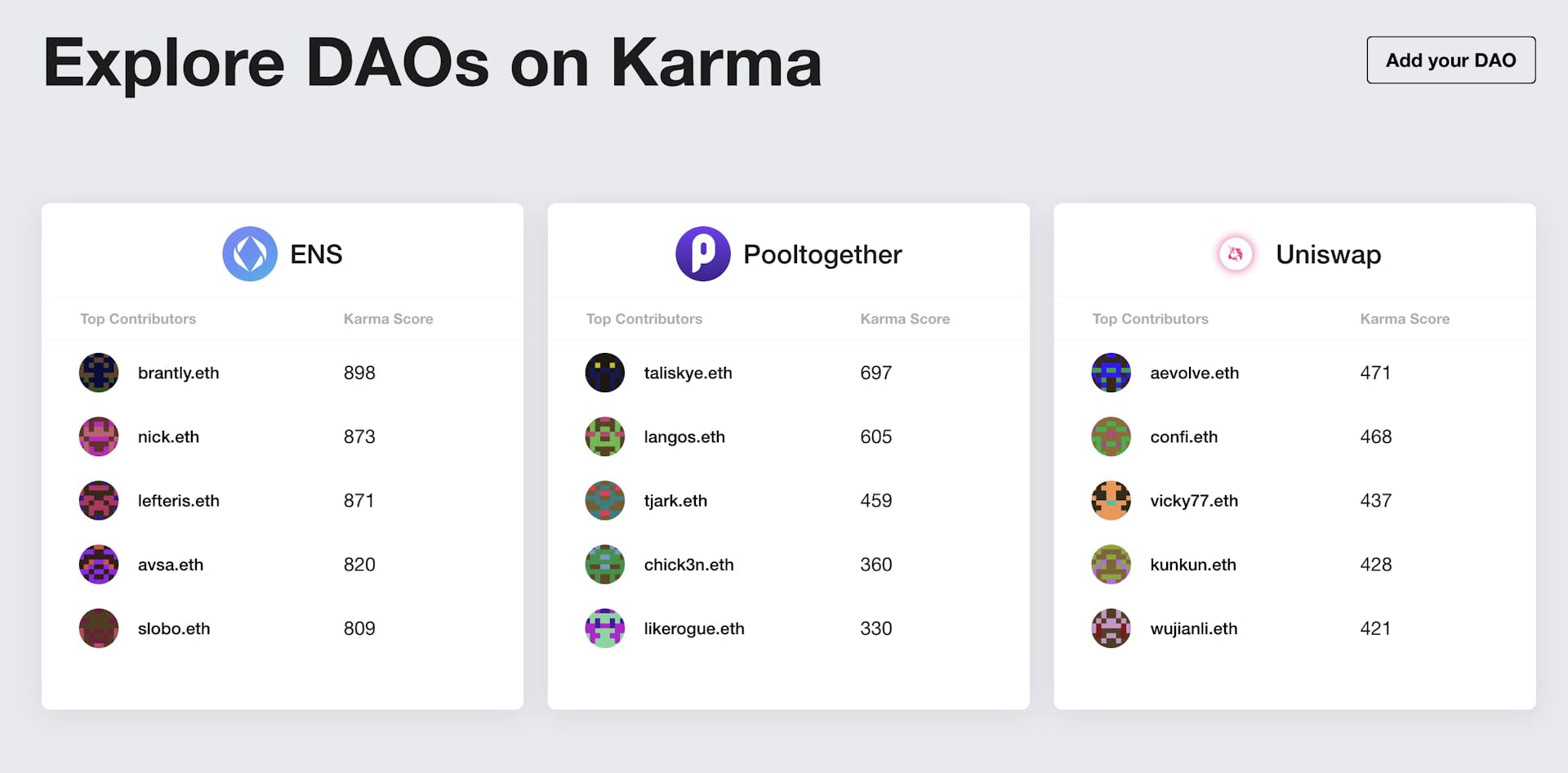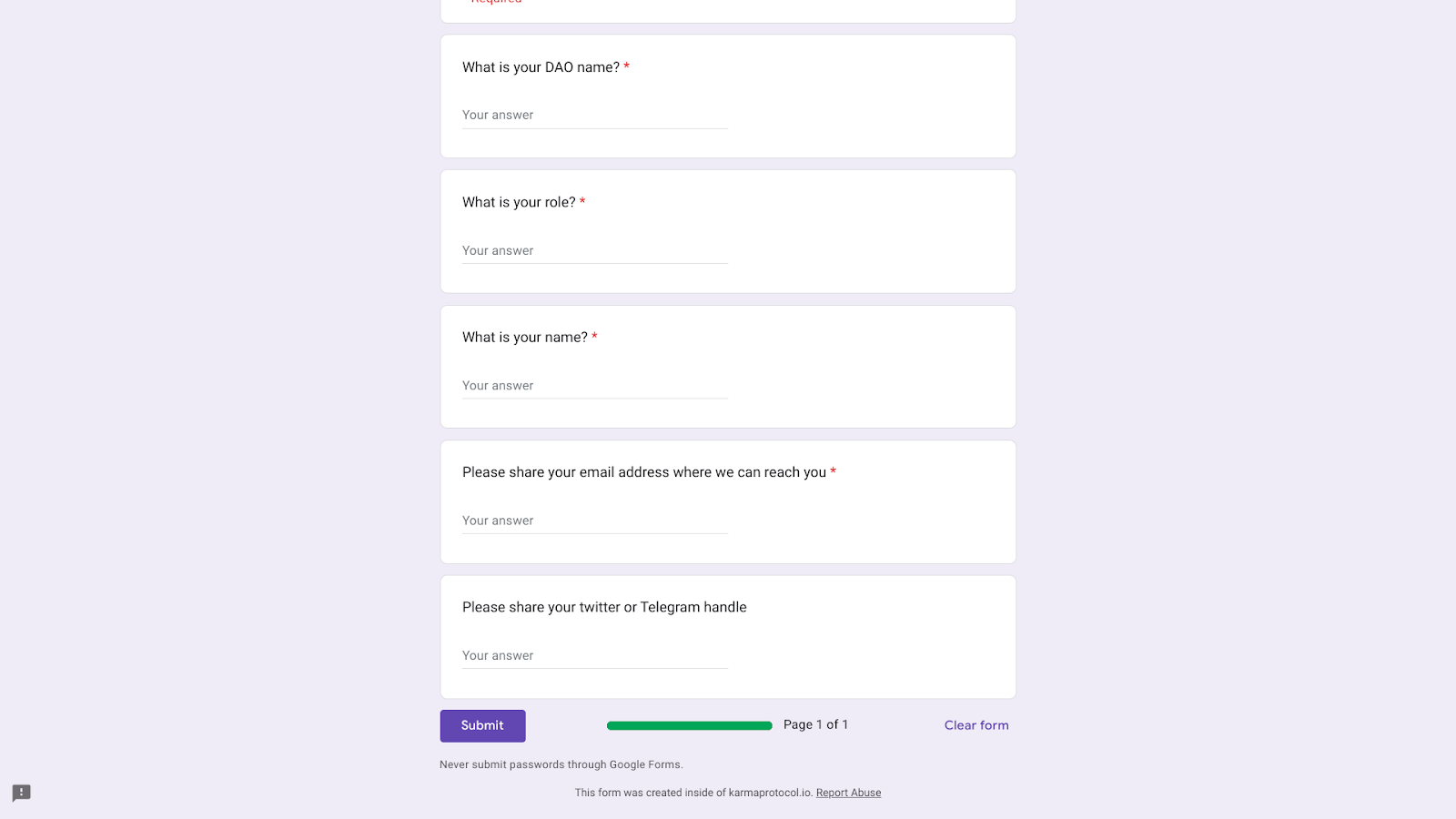
How to Use DAO Reputation Tools
Written by Frederik B
Reputation is fundamental to the modern world. We choose Uber drivers based on their reputation (or rating), decide which Airbnb to stay at based on reviews, and choose which Netflix shows to watch based on their ratings.
Decentralized Autonomous Organizations (DAOs) are collectives of individuals who share a common goal and actively contribute to achieving the objectives of the DAO. Unlike public and private companies, DAOs consist of both anonymous and pseudonymous individuals, as well as members who have chosen to disclose their identities (known as "doxxed" members).
Due to the unique team structure of DAOs, it is essential to employ tools that facilitate the management of members' reputation. This helps to make informed leadership decisions and reward members based on their contributions.
This article will provide an in-depth explanation of the role of tools in managing DAO reputations. It will cover the process of setting up a DAO reputation tool, specifically Karma, and also present a comprehensive list of alternative reputation tools available in the Web3 ecosystem.
Why do DAOs need reputation tools?
In a DAO, reputation is used to determine who gets to participate in decision-making and who doesn't. The challenge in a DAO is the pseudo-anonymity of the blockchain, which makes it difficult to know who is behind each wallet address.
Manually managing reputation within a DAO can be an extremely time-consuming task. Fortunately, there are now several tools available that automate this process. DAO reputation tools such as Karma and DeepDAO monitor the activity of addresses within the DAO and assign a reputation score to each address based on its contributions and participation.
DAO reputation tools provide the ability to promptly and effortlessly identify active and participating addresses within the DAO, as well as identify those that are inactive or not actively contributing.
How to Set Up Karma for Your DAO
There are multiple DAO reputation tools that exist. This is a simple overview of how to use Karma, a reputation aggregator that curates DAO contributor activity, provides visibility to the DAOs, and helps contributors showcase their work.
1. Add Your DAO to Karma
Go to the Karma website and click the "Add Your DAO" button.

2. Complete the Karma Google Form
The "Add Your DAO" button directs you to a Google Form where you can enter the details of your DAO. You will be required to provide the name of your DAO, your role, and your contact information.

3. Click Submit
Once you've provided all of the required information, click "Submit" and the Karma team will review your DAO's information and consider adding your DAO to their platform.
List of DAO Reputation Tools
In addition to Karma, there are several alternative DAO Reputation tools, including:
Metopia - a web 3 tooling infrastructure that creates data-based user reputation system for governance and reward applications.
SOURC3 - a web3-native, decentralized platform for on-chain reputation management.
PNTHN - enables users, artists, designers, founders, software engineers, and more to track their reputations and establish credibility in the NFT space.
Astraly - developing on-chain reputation primitives and a reputation-based token distribution platform.
Popula - building internet reputation and monetization through content creation and social engagement.
Underdog Protocol - helps Solana communities manage their contributors' relationships on-chain.
SourceCred - helps communities incentivize contributors for their work.
Orange Protocol - a reputation and trust minting protocol.
Krebit - creates a pseudonymous economy for users to prove things about themselves without revealing any unnecessary information.
Another plug-and-play reputation tool is SourceCred. You can find the setup information here. However, please note that using this tool requires proficiency in terminal, git, and JavaScript in order to properly set it up.

Related overviews
Learn how Japan's government is accelerating innovation and how companies are using blockchain technology.
Japan Airlines and Calbee, a Japanese Snack Food company, are using NFTs to promote tourism and brand loyalty.
WaveHack is the biggest web3 hackathon in Japan, and is being held from mid-April to the end of August 2024.

Build blockchain magic
Alchemy combines the most powerful web3 developer products and tools with resources, community and legendary support.